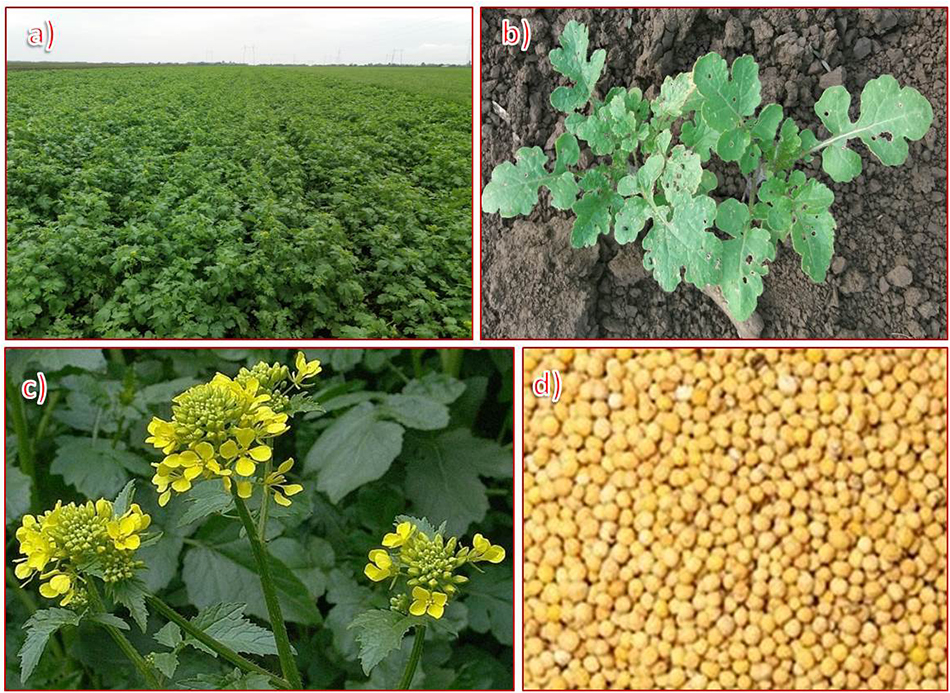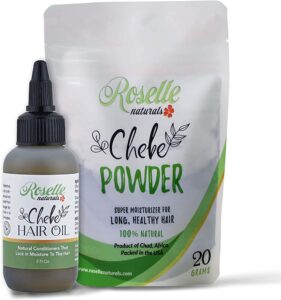Canola oil and vegetable oil are both plant-based oils, but canola oil is made from rapeseed while vegetable oil can be a blend of different plant oils. Canola oil has higher levels of monounsaturated fatty acids and lower levels of saturated fats compared to vegetable oil, making it a healthier option.
Plant-based oils have become quite popular in recent times due to the numerous health benefits they offer. Two popular plant-based oils are canola oil and vegetable oil. While the term “vegetable oil” is used for a variety of oils that are extracted from different plants, canola oil is specifically made from rapeseed.
In terms of health benefits, canola oil is considered a healthier option as it has higher levels of monounsaturated fatty acids and lower levels of saturated fats compared to vegetable oil. Let’s take a closer look at the differences between these two plant oils.

Credit: www.frontiersin.org
Understanding Canola Oil
Understanding Canola Oil:
If you’re looking for a cooking oil that’s healthier than the usual vegetable oils but without the distinct taste of olive oil, then canola oil may be the one for you. Understanding canola oil is imperative to make an informed choice about the type of oil you consume.
Definition Of Canola Oil
Canola oil is an oil derived from the rapeseed plant, which is a member of the mustard plant family. The oil is low in saturated fat and high in healthier monounsaturated and polyunsaturated fats. Also, canola oil contains vitamins e and k.
The History Of Canola Oil And Its Development
Here are some of the key points about canola oil’s history:
- In the early 1970s, the canadian government funded research to breed a new variety of rapeseed plant called canola.
- They aimed to produce an oil with a milder flavour and lower-erucic acid because earlier versions of rapeseed oil were not safe to consume.
- It was not until 1985 that the united states’ food and drug administration qualified canola oil as safe for consumption.
Nutritional Value And Benefits Of Canola Oil
Canola oil packs a nutritional punch, with numerous benefits for your health. Here are some of the key benefits:
- Canola oil is a good source of monounsaturated and polyunsaturated fats, which help to reduce bad cholesterol levels.
- The oil has anti-inflammatory properties, which can help fight against numerous diseases, including cancer.
- Canola oil is an excellent source of vitamin e, an antioxidant that helps protects cells from damage.
Overall, canola oil is a healthy and versatile cooking oil that provides numerous health benefits due to its low levels of saturated fat and high levels of unsaturated fats.
Understanding Vegetable Oil
Vegetable oil is a widely consumed cooking oil made from various plant sources. It is commonly used in households and the food industry due to its affordability and versatility. In this section, we will understand the definition of vegetable oil, types of vegetable oil available, and their nutritional value and benefits.
Definition Of Vegetable Oil
Vegetable oil is a range of oils extracted from various plant sources. It can be derived from nuts, seeds, fruits, and vegetables. The common plant sources include rapeseed, soybean, sunflower, palm, corn, and olive. Vegetable oils are processed using mechanical or chemical methods to extract oil from the source.
These oils are then refined, purified, and bottled for consumption.
Types Of Vegetable Oil Available
There are numerous types of vegetable oils available, each with unique characteristics and flavors. Some of the most commonly used oils are:
- Soybean oil: It has a mild flavor and is rich in omega-3 and omega-6 fatty acids. It is often used in fast-food chains and processed foods.
- Sunflower oil: It is high in vitamin e and has a neutral flavor, making it ideal for cooking and frying.
- Canola oil: It has a neutral flavor and is rich in monounsaturated fats. It is popular in north america and is often used in salad dressings and baked goods.
- Olive oil: It has a strong flavor and is rich in antioxidants and healthy fats. It is commonly used in mediterranean cuisine and for salad dressings.
- Palm oil: It is widely used in the food industry due to its high saturated fat content. It has a neutral flavor and is often used in processed food products.
Nutritional Value And Benefits Of Vegetable Oil
Vegetable oils are a rich source of healthy fats, vitamins, and antioxidants. They are low in saturated fats and are considered healthier than animal-based fats. Some of the benefits of using vegetable oils are:
- Reduce the risk of heart disease: Vegetable oils are rich in unsaturated fats that help lower blood cholesterol levels and reduce the risk of heart disease.
- High smoke point: Many vegetable oils have a high smoke point, making them ideal for frying and cooking.
- Rich in vitamin e: Vegetable oils are a good source of vitamin e, which is essential for healthy skin and hair.
- Easy to digest: Vegetable oils are easily digestible and can help in maintaining digestive health.
Vegetable oil is a healthy and affordable cooking oil option. It comes in various types, each with unique characteristics and benefits. Its nutritional value and health benefits make it a popular choice among consumers.
Differences Between Canola And Vegetable Oil
Canola oil and vegetable oil are two commonly used cooking oils. While they may seem the same, there are a few distinct differences between the two. Here are the key differences between canola and vegetable oil:
Chemical Composition And Processing Of Canola And Vegetable Oil
Canola oil and vegetable oil differ in their chemical composition and processing methods. Here are the key factors that distinguish these oils:
- Canola oil is extracted from the rapeseed plant, while vegetable oil is usually a blend of various plant oils, such as soybean, sunflower, and corn oils.
- Canola oil has lower levels of saturated fats and higher levels of monounsaturated and polyunsaturated fats than vegetable oil.
- Canola oil undergoes a thorough refining process that removes impurities, while vegetable oil is often minimally processed, making it less pure.
Smoke Point Comparison Between The Two
The smoke point of oil is the temperature at which it starts to break down and release smoke. Canola and vegetable oils have different smoke points, which make them suitable for different cooking methods. Here’s how the two oils compare:
- Canola oil has a high smoke point of around 400°f, making it ideal for high-temperature cooking methods, such as deep-frying, baking, and grilling.
- Vegetable oil has a lower smoke point of around 350°f, making it best suited for low-temperature cooking methods, such as sautéing and stir-frying.
Purity Levels And Health Implications
The purity levels and health implications of canola and vegetable oil are crucial factors to consider. Here are the key points to note:
- Canola oil is considered a healthier option than vegetable oil due to its lower levels of saturated fats and higher levels of unsaturated fats, which may lower cholesterol and reduce the risk of heart disease.
- Vegetable oil may be less healthy due to its higher levels of saturated and trans fats, which can increase cholesterol levels and raise the risk of heart disease.
- Canola oil is generally considered a more pure oil than vegetable oil, as it undergoes a more thorough refining process that removes impurities. However, some brands of vegetable oil may also be highly refined and pure. Always check the labels before purchasing.
Canola and vegetable oil have different chemical compositions, smoke points, purity levels, and health implications. It’s always important to choose the right oil for your cooking needs and to use them in moderation to maintain a healthy lifestyle.
Health Implications Of Canola And Vegetable Oil Use
Understanding Dietary Fats And Cholesterol
When it comes to cooking oils, one of the most important factors to consider is the type of fat they contain. Both canola oil and vegetable oil are high in unsaturated fats, which can be helpful in reducing the risk of heart disease and reducing cholesterol levels in our bodies.
However, it’s essential to understand that not all fats are created equal. Saturated fats can increase cholesterol levels and increase the risk of heart disease and stroke. Trans fats, which are often found in processed foods, are the worst offenders and should be avoided entirely.
Health Benefits And Risks Of Using Canola Oil
Canola oil is high in monounsaturated fats, which can help lower cholesterol levels. It’s also a good source of omega-3 fatty acids, which are essential to our health.
Benefits:
- Contains low levels of saturated fats compared to other oils
- High in monounsaturated fats that can reduce ldl cholesterol levels
- Contains omega-3 and omega-6 fatty acids
- Rich in vitamin e and k
Risks:
- Canola oil is still an oil and should be used in moderation
- Contains high levels of omega-6 which could increase inflammation if consumed in excess
Health Benefits And Risks Of Using Vegetable Oil
Vegetable oil is a catch-all term for oils derived from various plant sources such as corn, soybean, and canola. While it may seem like a healthier choice than other oils, it’s essential to understand its pros and cons.
Benefits:
- Low in saturated fats
- High in polyunsaturated fats which are beneficial for heart health
- Can improve the level of hdl, the good cholesterol
Risks:
- May contain high levels of omega-6 which could increase inflammation if consumed in excess
- Processing for commercial purposes may involve chemical solvents and high heat, which destroys beneficial nutrients in the oil.
Both canola oil and vegetable oil can be part of a healthy diet, but it’s essential to use them in moderation and choose high-quality options. Any oil should not be overused because they are calorically dense and not all oils are healthy.
Choose the right oil based on the type of cuisine to be prepared, the cooking method, smoking point and your health needs.
Culinary Uses Of Canola And Vegetable Oil
Culinary Applications Of Canola And Vegetable Oil
Canola and vegetable oils are two of the most widely-used cooking oils around the world. Let’s delve deeper into their culinary uses.
- Both canola and vegetable oils are used extensively for baking, frying, roasting, sautéing, and grilling.
- Canola oil has a neutral taste and can be used in almost all dishes like curries, stir-fries, and salads.
- Vegetable oil, on the other hand, has a mild flavor and is often used for deep frying, baking, and making sauces.
How To Safely And Healthily Use Canola And Vegetable Oil
While oils can make a dish palatable, it’s important to use them safely and healthily. Below are some tips on using canola and vegetable oils healthily.
- Opt for high-quality, unrefined oil, which is free of harmful chemicals and additives.
- Use canola and vegetable oils that are organic and non-gmo, as they are less likely to have harmful additives.
- Both oils should be stored in a cool, dark place, such as the refrigerator, which can help limit oxidation and maintain their flavor.
- Use oils in moderation to maintain healthy fat intake levels.
The Pros And Cons Of Using Each Oil In Different Dishes
Here are the pros and cons of using each oil in different dishes:
- Canola oil is a healthier option compared to vegetable oil. It has less saturated fat and higher levels of monounsaturated fats, which contribute to heart health.
- Canola oil has a high smoke point of 400°f, making it great for frying, while vegetable oil has a smoke point of around 350°f.
- Vegetable oil is less expensive than canola oil, which makes it a popular choice for deep frying in restaurants.
- Vegetable oil is also highly refined and heavily processed, which may diminish its nutritional value.
While both canola and vegetable oils have their advantages and disadvantages, it’s essential to use them in moderation, coupled with a healthy diet and exercise, to maintain a healthy lifestyle.
Environmental Impact Of Canola And Vegetable Oil Production
The Environmental Impact Of Canola And Vegetable Oil Cultivation
The cultivation and production of canola and vegetable oil have a significant environmental impact. Here are some of the key factors to consider:
How And Where Each Oil Is Cultivated
- Canola oil is primarily cultivated in north america, europe, and australia, while vegetable oil is produced worldwide, including asia, africa, and south america.
- Both canola and vegetable oil are derived from crops that require intensive farming techniques, including the use of fertilizers, pesticides, and irrigation systems.
- The production of canola oil requires large amounts of water, and the cultivation of both oils can lead to soil degradation and erosion.
- Vegetable oil cultivation is often linked to deforestation, as forests are cleared to make way for large-scale plantations.
Sustainability Issues And Potential Solutions
- The cultivation of both oils can have negative impacts on the environment and surrounding communities, including the loss of biodiversity and soil health degradation.
- Sustainability initiatives focused on canola oil include reducing water usage, using non-toxic fertilizers and pesticides, and improving crop rotation.
- Initiatives aimed at improving the sustainability of vegetable oil production include implementing sustainable farming practices, such as agroforestry and improved waste management.
- The use of sustainably sourced canola and vegetable oils can help reduce the environmental impact of these products.
While canola and vegetable oils are popular cooking oils, their cultivation and production have significant environmental impacts. By implementing sustainability initiatives, we can reduce the negative effects of these oils and create a more sustainable future.
Frequently Asked Questions On Difference Between Canola Oil And Vegetable Oil
What Is Canola Oil?
Canola oil is extracted from the seeds of the canola plant and is low in saturated fats.
Is Canola Oil Better Than Vegetable Oil?
Canola oil is a healthier option because it has less saturated fat than vegetable oil.
What Is Vegetable Oil Made From?
Vegetable oil is usually made from a blend of different plant oils such as soybean, sunflower, and canola.
Can You Use Canola Oil Instead Of Vegetable Oil?
Yes, canola oil can be used instead of vegetable oil in most recipes.
Which Oil Is Better For Frying – Canola Oil Or Vegetable Oil?
Canola oil has a higher smoke point than most vegetable oils, making it better for frying.
Conclusion
It is essential to acknowledge that both canola oil and vegetable oil have their own unique nutritional benefits. However, they are different from each other in terms of their taste, health benefits, and the way they are processed. Canola oil contains less saturated fat, has a higher smoke point, and is heart-healthy.
Vegetable oil, on the other hand, is versatile, cheaper, and easily available. As a conscientious consumer, it is imperative to choose an oil that caters to your nutritional needs. While both oils have their benefits, canola oil emerges victorious. It is the ideal cooking oil as it contains omega-3 fatty acids, reduces the risk of heart disease, and maintains healthy cholesterol levels.
Choosing the right oil for cooking is crucial for your health and well-being. As an seo friendly content writer, i hope that this article enabled you to differentiate between canola oil and vegetable oil and make an informed choice for a healthy lifestyle.








